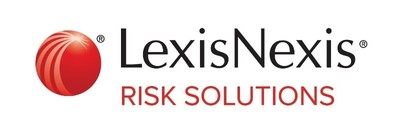PathAI and Bristol Myers-Squibb to Showcase Results From First AI-Powered Analysis of PD-L1 Expression Across Three Phase 3 Trials at SITC 2019
Press Releases
Nov 05, 2019
BOSTON, Nov. 5, 2019 /PRNewswire-PRWeb/ — PathAI, a global provider of artificial intelligence (AI)-powered technology for use in pathology research, today announced the results of a robust, retrospective analysis examining PD-L1 expression on tumor and immune cells from 1,079 patient samples across three randomized Phase 3 clinical trials evaluating Opdivo (nivolumab) in non-small cell lung cancer.
The study found a strong correlation between AI-powered and manual quantification of PD-L1 across tumor cells, macrophages, lymphocytes and total immune cells. PathAI and Bristol-Myers Squibb will present these findings in an oral presentation at the 34th Annual Meeting & Pre-Conference Programs (SITC 2019) of the Society for Immunotherapy of Cancer from November 6–10 in National Harbor, Maryland.
In the study, after training a model with more than 250,000 pathologist-provided annotations using the PathAI research platform, algorithm analytic performance was assessed against a consensus of five pathologists. The AI-powered and manual approaches found similar associations between PD-L1 expression on tumor and immune cells and progression-free survival.
The findings were based on the evaluation of three clinical trials (CheckMate -017 [n=167], CheckMate -026 [n=502], and CheckMate -057 [n=410]). Of note, composite PD-L1 expression on tumor cells plus macrophages did not show a stronger association with response compared with tumor cells alone. These results will be presented in Concurrent Session 307 on Saturday, November 9 at 4:45p ET (Presentation #O65).
“Together with partners like PathAI, Bristol-Myers Squibb’s translational scientists are tapping into the most advanced imaging, digital pathology and AI technologies available in order to accelerate research – at scale – that can help predict patient outcomes more quickly and accurately,” said Saurabh Saha, M.D., Ph.D., senior vice president, global head of translational medicine at Bristol-Myers Squibb. “The combination of our unique expertise and sophisticated capabilities enables us to explore biological insights in real-time and translate them into meaningful learnings that fuel our R&D organization.”
In a related analysis, PathAI and Bristol-Myers Squibb researchers retrospectively examined samples from 293 patients across two clinical trials of Opdivo in advanced urothelial cancer. The AI-powered PD-L1 assessment showed a significantly stronger correlation with the reference standard (consensus of five pathologist PD-L1 positivity scores) compared with the individual pathologist scores for quantifying PD-L1 expression in lymphocytes (r=0.744 vs 0.598) and macrophages (r= 0.68 vs 0.287). In assessing PD-L1 positivity on tumor cells, there was no difference between the PathAI platform and the individual pathologist scores versus the reference standard (r=0.837 vs 0.857), demonstrating the PathAI platform performed similar to or better than pathologist-based scoring in all cell types tested, and especially for immune cells where manual correlation is known to be low. These results will be reported in a poster presentation on Saturday, November 9 from 7a–8p (Presentation #P730).
“In both studies, we put our process up against a very rigorous and high-quality benchmark,” said Andy Beck, co-founder and CEO at PathAI and an author on both studies. “We’re pleased to see that the PathAI approach performed well, demonstrating performance at the level of board-certified pathologists exhaustively labeling cells by hand across the board.”
The results of these robust analyses show the predictive promise of AI and suggest a benefit from the reliable and reproducible nature of AI-powered pathology interpretation in immuno-oncology, as assessing PD-L1 expression on immune cells by traditional approaches can be challenging. “We hope to be able to offer results to every patient that reflect the rigor and reliability of a five-pathologist panel, delivering a level of quality that cannot yet be provided at scale today,” said Beck. “This research shows that such a future may not be so far off after all.”
About PathAI
PathAI is a leading provider of AI-powered research tools and services for pathology. PathAI’s research platform promises substantial improvements to the accuracy of diagnosis and the efficacy of treatment of diseases like cancer, leveraging modern approaches in machine and deep learning. Based in Boston, PathAI works with leading life sciences companies and researchers to advance precision medicine. To learn more, visit pathai.com.
About Bristol-Myers Squibb
Bristol-Myers Squibb is a global biopharmaceutical company whose mission is to discover, develop and deliver innovative medicines that help patients prevail over serious diseases. For more information about Bristol-Myers Squibb, visit us at BMS.com or follow us on LinkedIn, Twitter, YouTube, Facebook and Instagram.
SOURCE PathAI


